Biagetti’s Wearable Casa collection is a beautiful mélange of design inspiration
Biagetti's wearable Casa Collection in collaboration with MCM is inspired by an array of urban culture, artificial intelligence and uncommon objects, showcased at Milan Design Week 2024
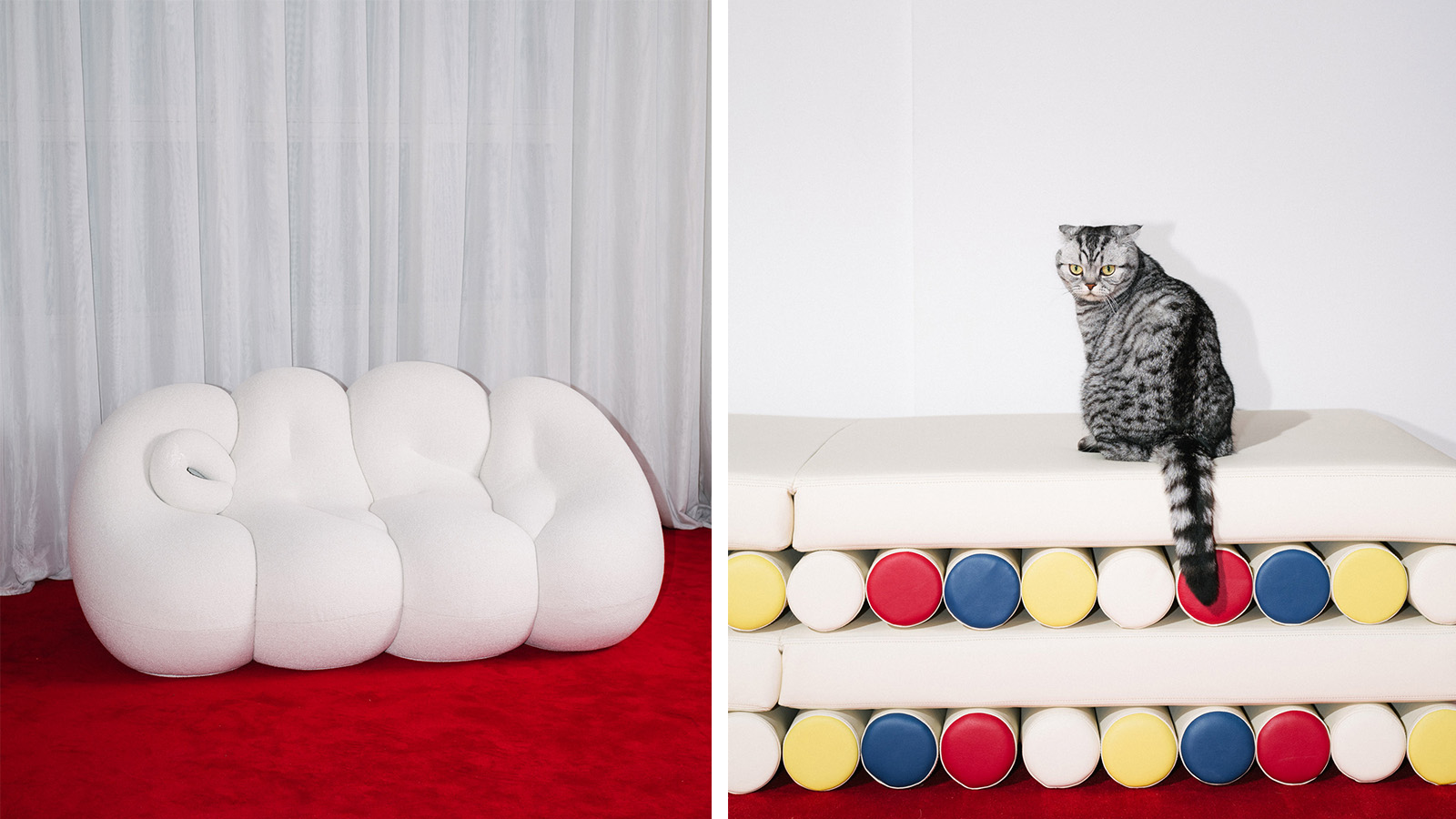
Born in Romagna, a corner of Italy devoted to the fabled director Federico Fellini, Alberto Biagetti and Laura Baldassari of Atelier Biagetti understand the seriousness of irony. During Salone del Mobile 2024, they prove this ability once more with their MCM Wearable Casa Collection, curated by Maria Cristina Didero, on view at the 17th-century Palazzo Cusani.
The brand, explains Mrs Sung-Joo Kim, chairman and chief visionary officer, decided to participate to Milan Design Week for the first time, not only because it’s the most cutting-edge event in the world and a real indicator of emerging consumer lifestyle. The reason, she adds, has also to do with MCM’s origin: ‘It’s a German-born luxury fashion brand founded in 1976, when Munich was making a global cultural and creative epicentre of that time’ Mrs Kim explains. ‘Milan Design Week is the best, most timely event to present MCM’s current vision of Digital Nomad Lifestyle – authentic hands-free style – from not only selling perspective, but to activate it as a significant concept: dwelling in the on/offline and metaverse worlds by the current and future generations.’
Biagetti's wearable Casa Collection for MCM
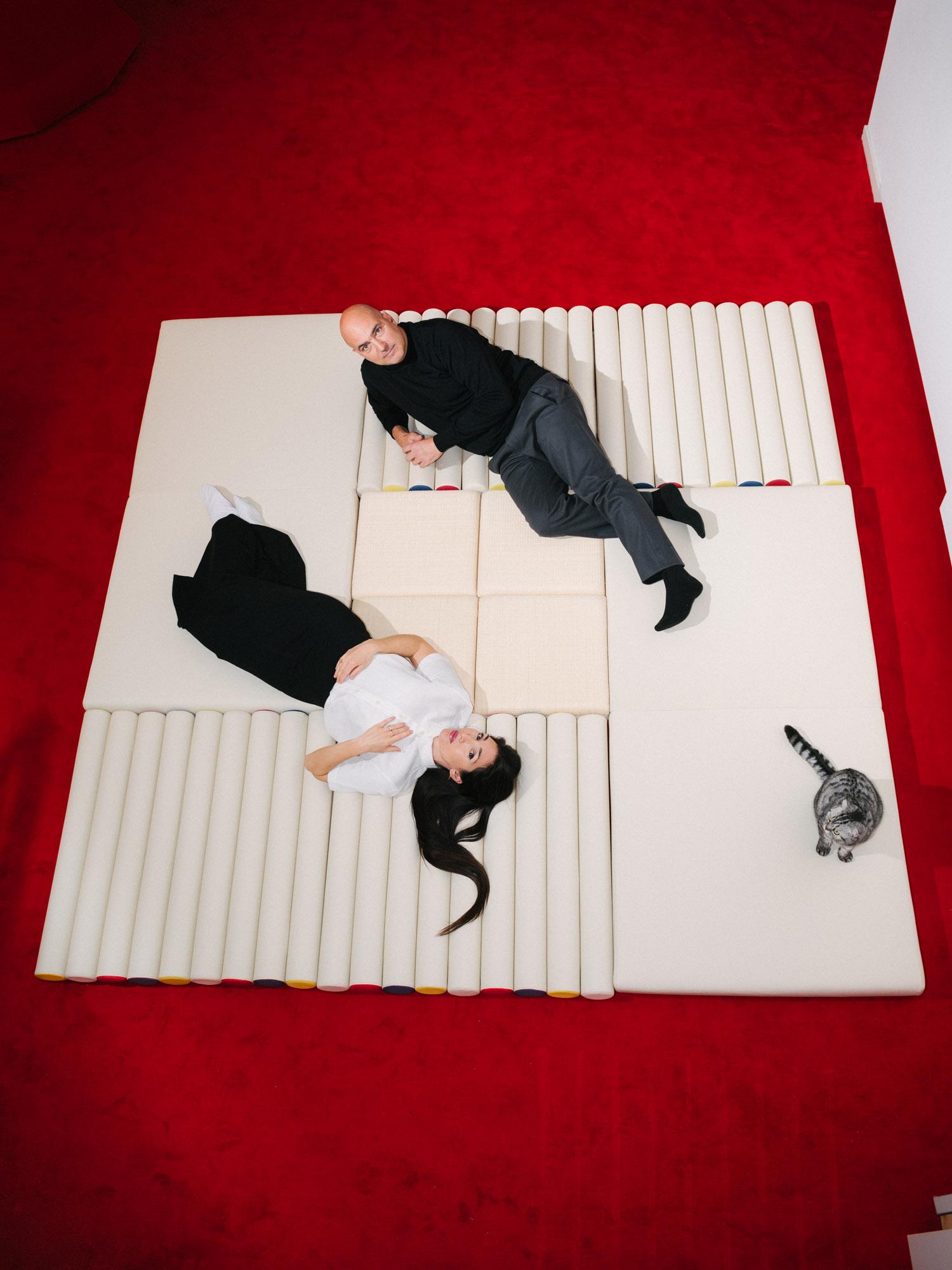
Alberto Biagetti, Laura Baldassari and Birba on the ‘Tatamu’ sofa
The title, Wearable Casa Collection (casa meaning home in Italian), raised some important questions for Atelier Biagetti: ‘There is much talk about the multiverse, rather than a domestic dimension from the past: today, everything happens in multiple places, even at the same time, and we have imagined a home that can even exists outside of this planet, in a digital dimension.’
As a result, the seven pieces are portable and multifunctional – they have been distilled from the wonderful chaos, as they define it, that governs Atelier Biagetti’s creative process. ‘We decided to present a panorama of objects that reflect how we live today’ says Baldassari. ‘Home is no longer the four walls where you go to sleep in the evening, but rather a broad concept that begins with the places you live, the people you meet, the family you choose, and the city where you live.’ Mrs Kim agrees: ‘Atelier Biagetti is far from the classic design studios, most of its projects deal with surprising performances, unpredictable videos, uncommon objects, which we really feel close to at MCM.’
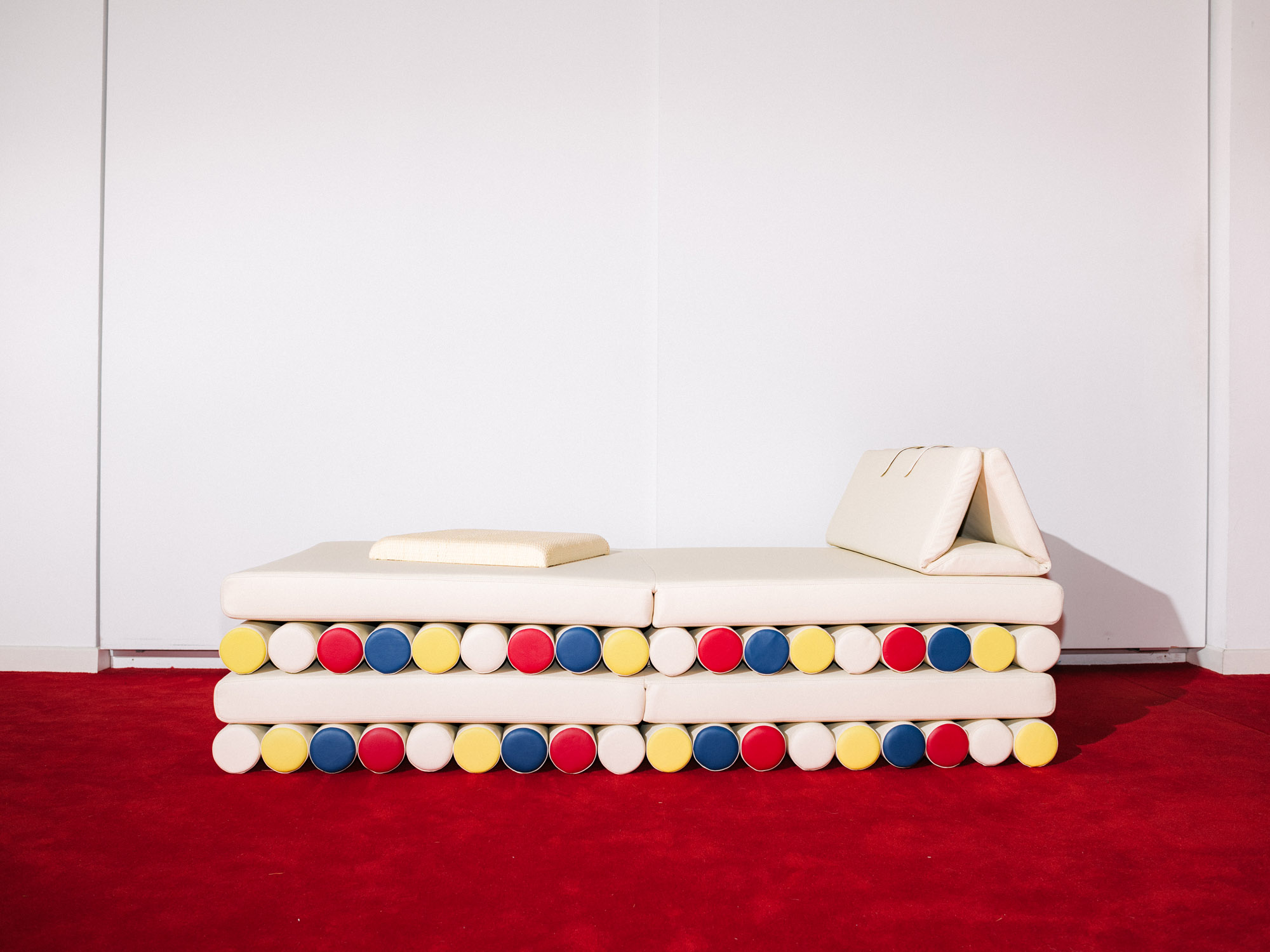
The ‘Tatamu’ sofa is a Bauhaus-inspired daybed/tatami mat that reflects MCM’s links to South Korea (the German company was relaunched in 2006 by the Seoul-based Sungjoo Group)
Each piece of the collection, the designers explain, has very specific DNA. They consider the poetics, material, meaning, history, and values of the brand. Madness is a must, too. ‘Our objects are similar to Frankenstein, which is why they can convey emotions.; Take the Chatty Sofa. Not only is it inspired by urban graffiti culture, but also by the generative forms of artificial intelligence, ‘which has created an interesting aesthetic and therefore a style – this style belongs to no one but belongs to everyone, like graffiti art’ explains Biagetti. Part of the Sofa’s genetic makeup is also the concept of journey, which is represented by a simple travel neck pillow disguised as a cushion laying on the letter C of Casa.
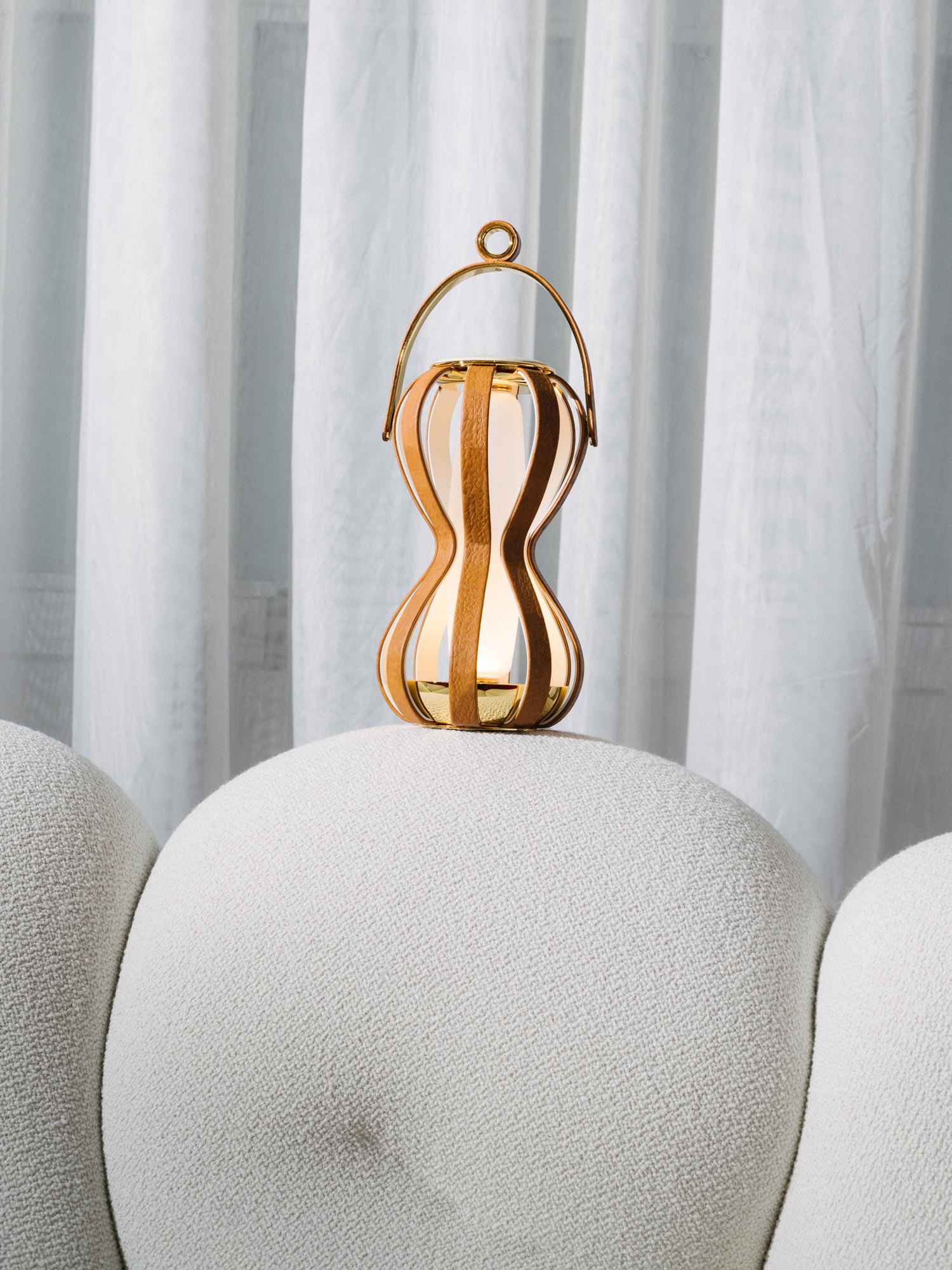
The ‘Clepsydra’ portable lantern comes with a rattan explorer hat that can be either worn or placed on the LED light to modulate temperature and colour
For their Magic Gilet, they were inspired by the word Wearable, as well as Nicolas de Larmessin's eighteenth-century drawings Les Costumes grotesques, in which each figure is depicted in the accoutrement of his or her particular trade or occupation, with clothing made from tools from that trade. ‘The professions are constantly evolving, so the approach had to be that of a multifunctional object’ explains Baldassari. ‘It can be worn and is obviously a tribute to MCM's history, but when hung on the wall, it functions as a storage system’ she adds. The end result echoes Dorothee Becker's Uten.Silo II: ‘Collecting the objects that belong to your life and your desires tells the story of the lives of those who live in the space.’
Completely different is the vision behind the Tatamu, a daybed designed with MCM’s origin in mind, as a German company with a strong South Korean connection. ‘We were stimulated by MCM's strong ethos to design a bridge object, a daybed that also functions as a tatami. The approach is one of complete freedom, thanks to the inclusion of trays and mobile cushions. It represents a space without boundaries, and the shapes and colours pay homage to the Bauhaus, MCM’s source of inspiration.’
Wallpaper* Newsletter
Receive our daily digest of inspiration, escapism and design stories from around the world direct to your inbox.
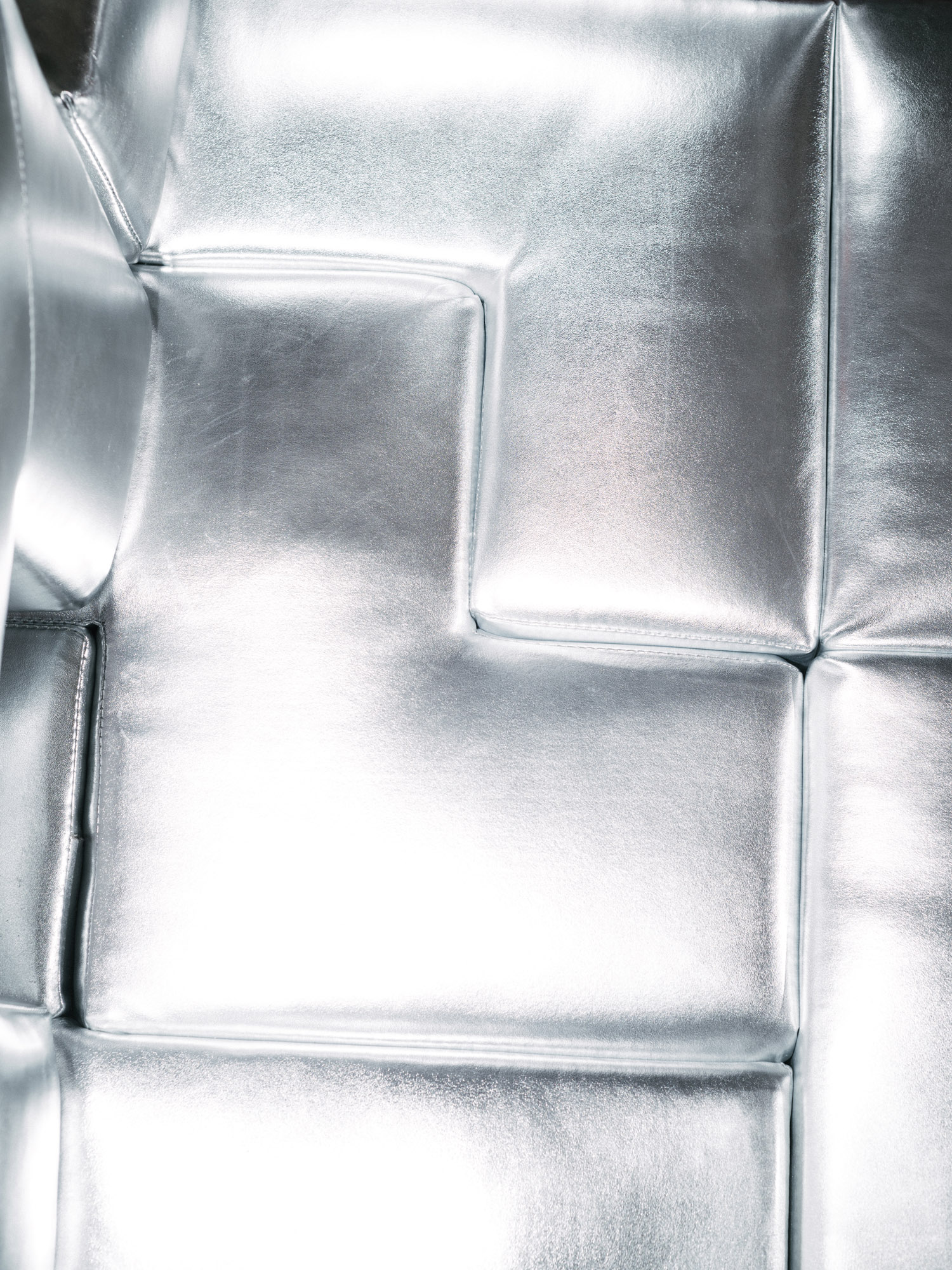
The ‘Mind Teaser’ infinite chair, comprising a series of reconfigurable Tetris-like elements upholstered in silver fabric
Spheres that transform into a bag with a mirror, a halo light, or a so-called wellness ball, as logo-driven as MCM. Minecraft-alike brainteaser modules, potentially infinite, and capable of transforming into a stool or chair. Finally, a portable lantern with a rattan cap and a backpack for humans who enjoy travelling with their cats. The MCM Wearable Casa collection, Mrs Kim resumes, defines how we will live – physically and digitally together, in a more sustainable way. “The Chatty sofa is both conversational and connected to our devices. The Tatamu mixes culture and future elegance. A stool can be configured in infinite ways depending on what you’re re-creating and where. The LED lanterns become hats! Bags are mirrors, balls are for sitting, lighting is transportable. Home furnishings are things that can travel with us to be used in more than one way – with self-style and self expressions.’
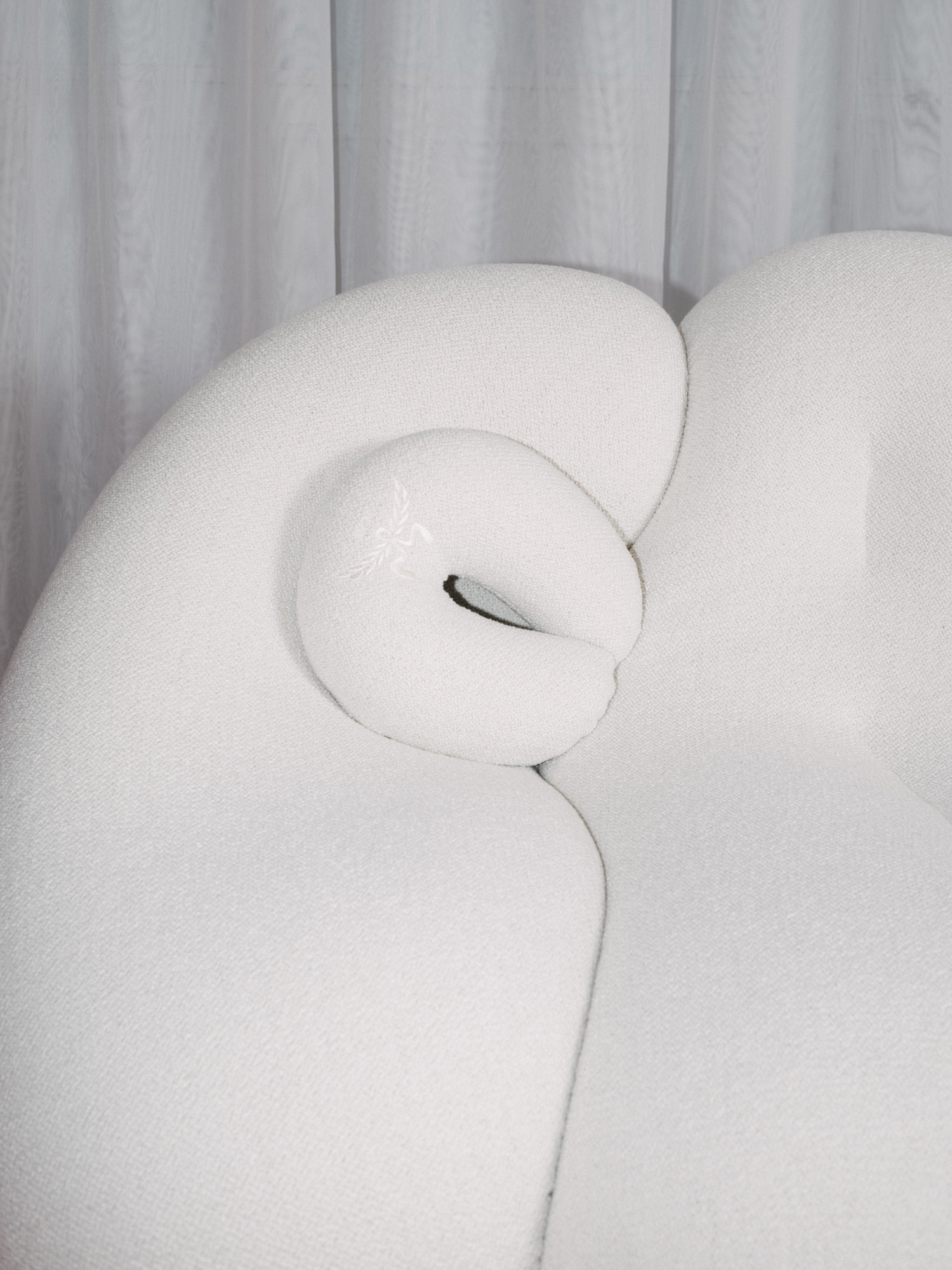
At Palazzo Cusani, the project exists on two levels: reality and metaverse - and Atelier Biagetti immerses itself in both dimensions: ‘As in Walt Disney’s Fantasia, the objects go insane and tell stories about themselves and their imaginations’ says Biagetti. ‘In our exhibition, the two worlds coexist and are inhabited simultaneously,’ concludes Baldassari. ‘They have the same significance, and the objects are called upon to perform different functions in the metaverse: we liked to give the objects a double possibility, while allowing anyone in the world to access the exhibition.’
MCM Wearable Casa by Atelier Biagetti is on view from 15-21 April during Milan Design Week 2024
Palazzo Cusani
Via Brera, 13-15
Milan
atelierbiagetti.commcmworldwide.com
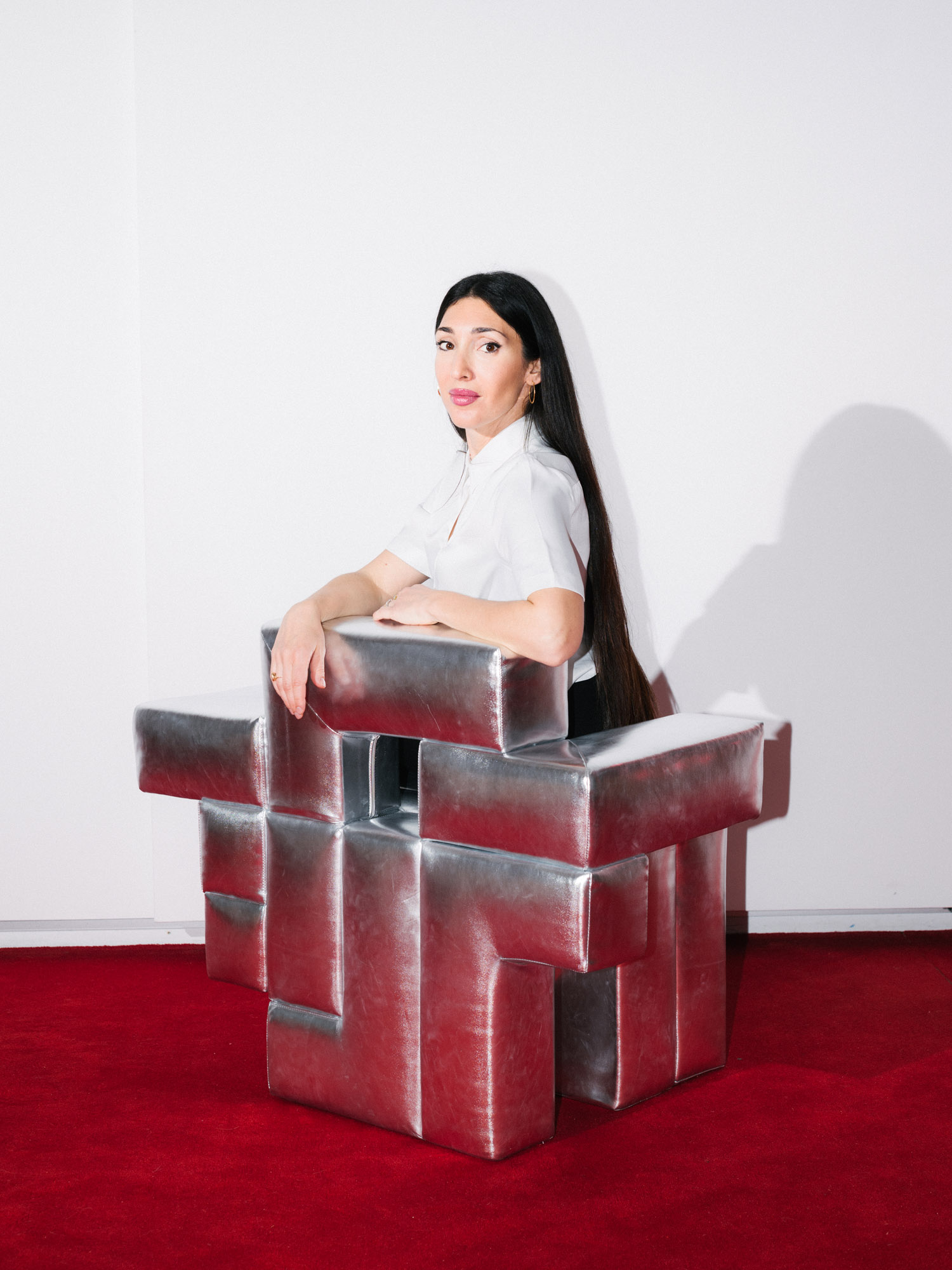
Laura Baldassari on the 'Mind Teaser' chair
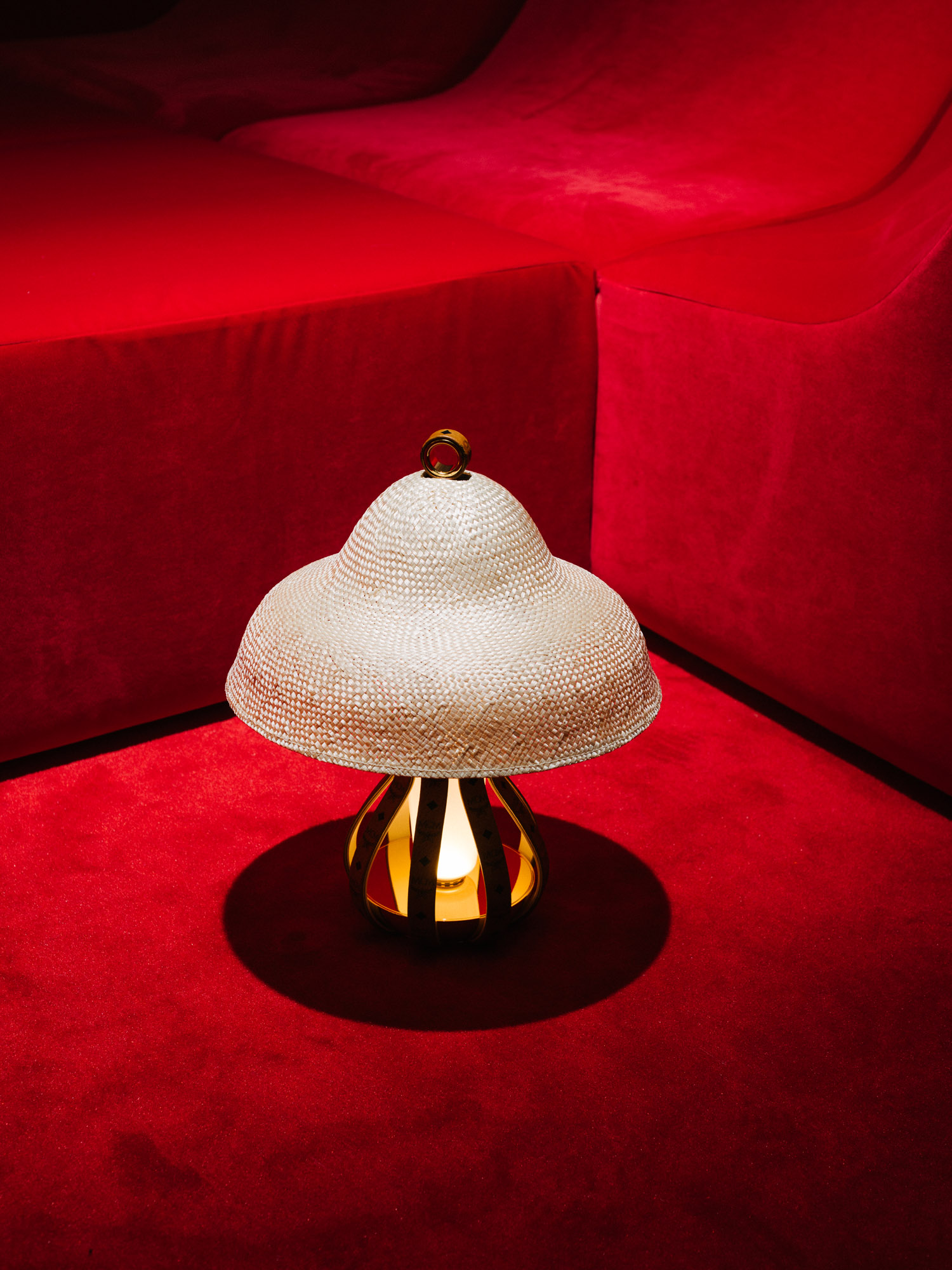
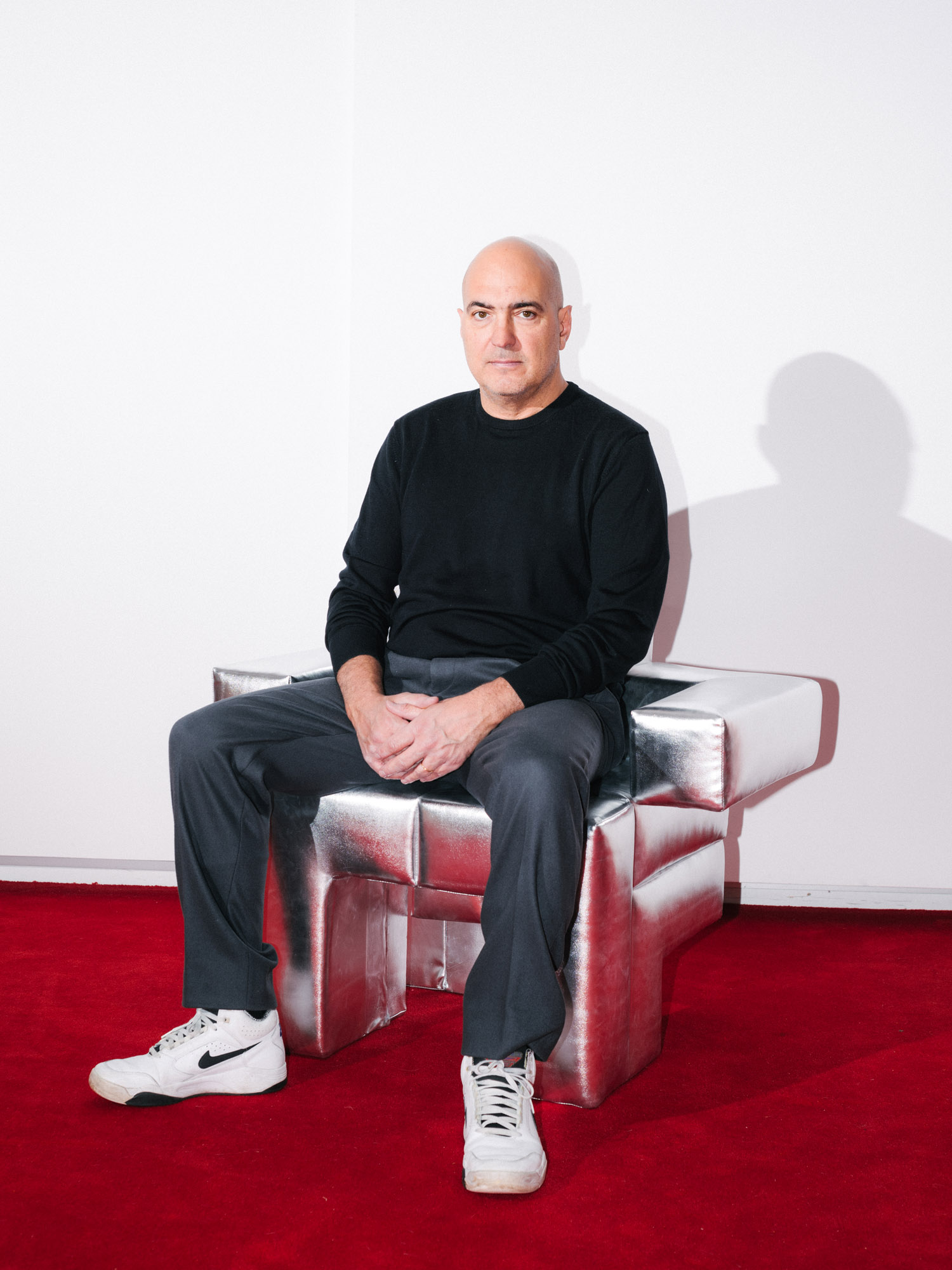
Alberto Biagetti on the 'Mind Teaser' chair
Cristina Kiran Piotti is an Italian-Indian freelance journalist. After completing her studies in journalism in Milan, she pursued a master's degree in the economic relations between Italy and India at the Ca' Foscari Challenge School in Venice. She splits her time between Milan and Mumbai and, since 2008, she has concentrated her work mostly on design, current affairs, and culture stories, often drawing on her enduring passion for geopolitics. She writes for several publications in both English and Italian, and she is a consultant for communication firms and publishing houses.
-
 Put these emerging artists on your radar
Put these emerging artists on your radarThis crop of six new talents is poised to shake up the art world. Get to know them now
By Tianna Williams
-
 Dining at Pyrá feels like a Mediterranean kiss on both cheeks
Dining at Pyrá feels like a Mediterranean kiss on both cheeksDesigned by House of Dré, this Lonsdale Road addition dishes up an enticing fusion of Greek and Spanish cooking
By Sofia de la Cruz
-
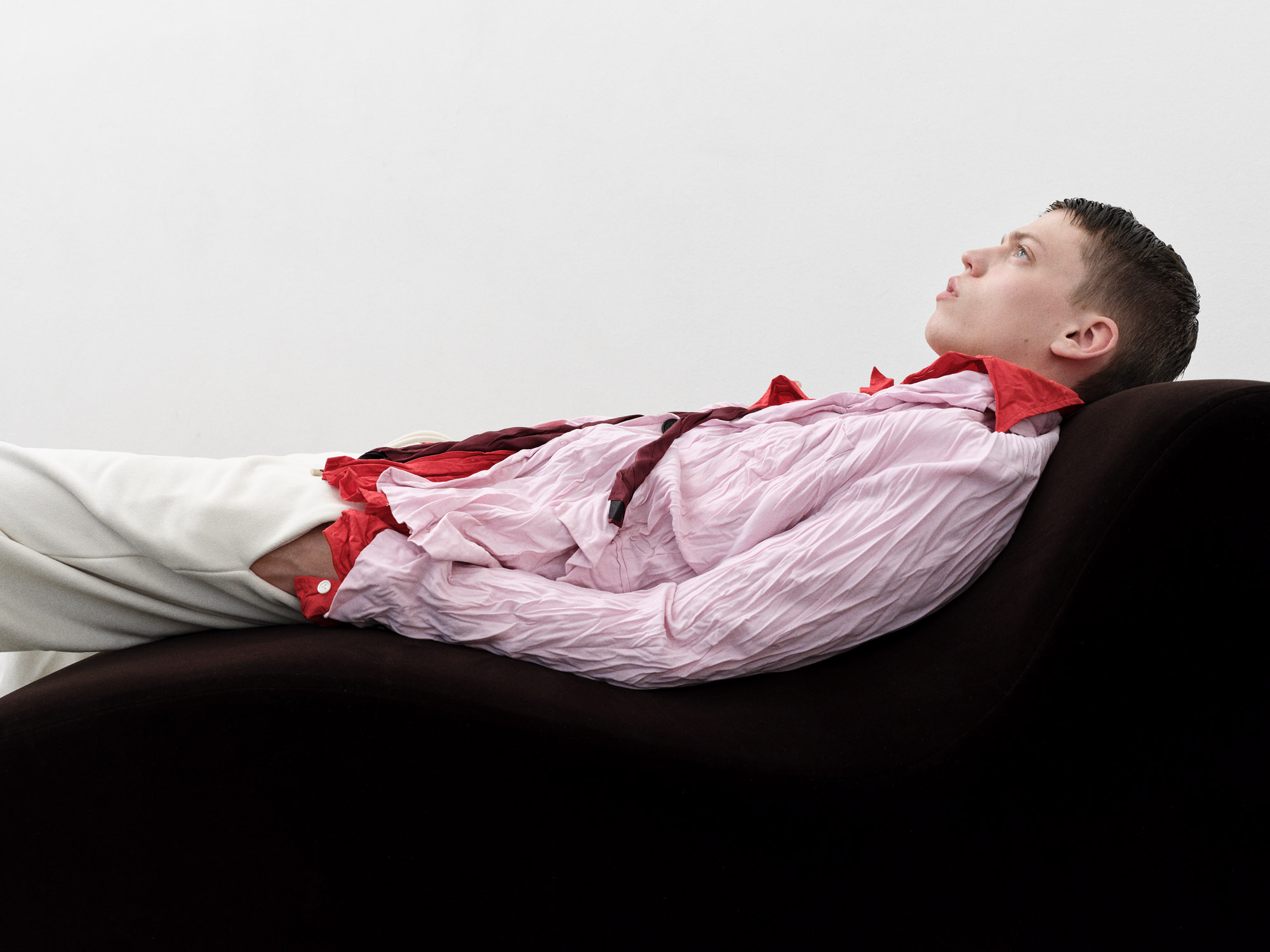 Creased, crumpled: S/S 2025 menswear is about clothes that have ‘lived a life’
Creased, crumpled: S/S 2025 menswear is about clothes that have ‘lived a life’The S/S 2025 menswear collections see designers embrace the creased and the crumpled, conjuring a mood of laidback languor that ran through the season – captured here by photographer Steve Harnacke and stylist Nicola Neri for Wallpaper*
By Jack Moss